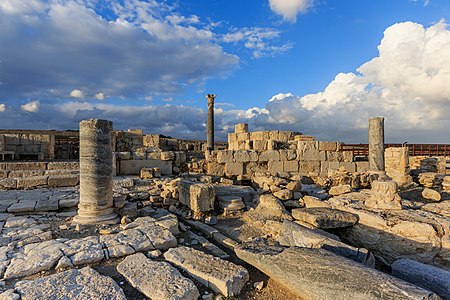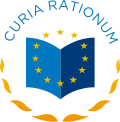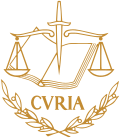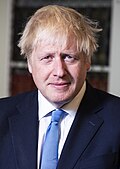Portal:European Union
Introduction
The European Union (EU) is a supranational political and economic union of 27 member states that are located primarily in Europe. The Union has a total area of 4,233,255 km2 (1,634,469 sq mi) and an estimated total population of over 449 million. The EU is often described as a sui generis political entity combining the characteristics of both a federation and a confederation. Containing 5.5% of the world population in 2023, EU member states generated a nominal gross domestic product (GDP) of around €17.935 trillion in 2024, constituting approximately one sixth of global nominal GDP. Its cornerstone, the Customs Union, paved the way to establishing an internal single market based on standardised legal framework and legislation that applies in all member states in those matters, and only those matters, where the states have agreed to act as one. EU policies aim to ensure the free movement of people, goods, services and capital within the internal market; enact legislation in justice and home affairs; and maintain common policies on trade, agriculture, fisheries and regional development. Passport controls have been abolished for travel within the Schengen Area. The eurozone is a group composed of the 20 EU member states that have fully implemented the economic and monetary union and use the euro currency. Through the Common Foreign and Security Policy, the union has developed a role in external relations and defence. It maintains permanent diplomatic missions throughout the world and represents itself at the United Nations, the World Trade Organization, the G7 and the G20. Due to its global influence, the European Union has been described by some scholars as an emerging superpower. In 2012, the EU was awarded the Nobel Peace Prize. The United Kingdom became the only member state to leave the EU, in 2020; ten countries are aspiring or negotiating to join it. (Full article...) Selected article The Galileo positioning system is a proposed satellite navigation system, to be built by the European Union as an alternative to GPS (which is controlled by the United States military) and the Russian GLONASS. The system should be operational by 2010, two years later than originally anticipated. The first stage of the Galileo program was agreed upon officially on May 26, 2003 by the European Union and the European Space Agency (ESA). It is named after the Italian astronomer Galileo Galilei. The Galileo positioning system should not be referred to as GPS, which refers specifically to the existing United States system, but as "Galileo." Galileo is intended to provide: greater precision to all users, improved coverage of satellite signals at higher latitudes, which northern regions such as Scandinavia will benefit from, a positioning system upon which European nations can rely even in times of war or political disagreement. Selected picturePhotograph credit: Alexander Savin Kourion is an ancient city-state on the southwestern coast of the island of Cyprus, located near modern Limassol, that existed from antiquity until the Middle Ages. Built in the 12th century BC by Mycenaeans who took part in the Trojan War, Kourion was later controlled by the Greeks, Romans, and Byzantines. The settlement was placed on a 70-metre-high (230 ft) cliff to ensure the safety of its citizens. The modern archaeological site is managed by the Department of Antiquities of Cyprus and includes the ruins of the stadium and the sanctuary of Apollo Hylates. This photograph depicts the ruins of Kourion's agora, a central public space in the city-state.
Did you know?...that within the Eurozone the European Central Bank has the exclusive authority to set monetary policy? ...that Greenland and United Kingdom are the only countries to ever leave the European Union? Selected cityLisbon is the capital and largest city of Portugal. It is the seat of the district of Lisbon and capital of Região Lisboa (Lisbon Region). Lisbon municipality has a population of 564,477, and the Lisbon Metropolitan Area in total has around 2,800,000 inhabitants, the largest urban aglomeration of Portugal. Lisbon Region is the wealthiest region in Portugal and it is well above the European Union's per capita GDP average. Lisbon hosts two important European Union agencies namely, the European Monitoring Centre for Drugs and Drug Addiction (EMCDDA) and the European Maritime Safety Agency (EMSA). The CPLP (Community of Portuguese Language Countries), is also headquartered in Lisbon. General imagesThe following are images from various European Union-related articles on Wikipedia.
TopicsFeatured contentFeatured articles
Featured lists
Featured contentGood articles
CategoriesRelated portalsAssociated WikimediaThe following Wikimedia Foundation sister projects provide more on this subject:
Discover Wikipedia using portals |



































































